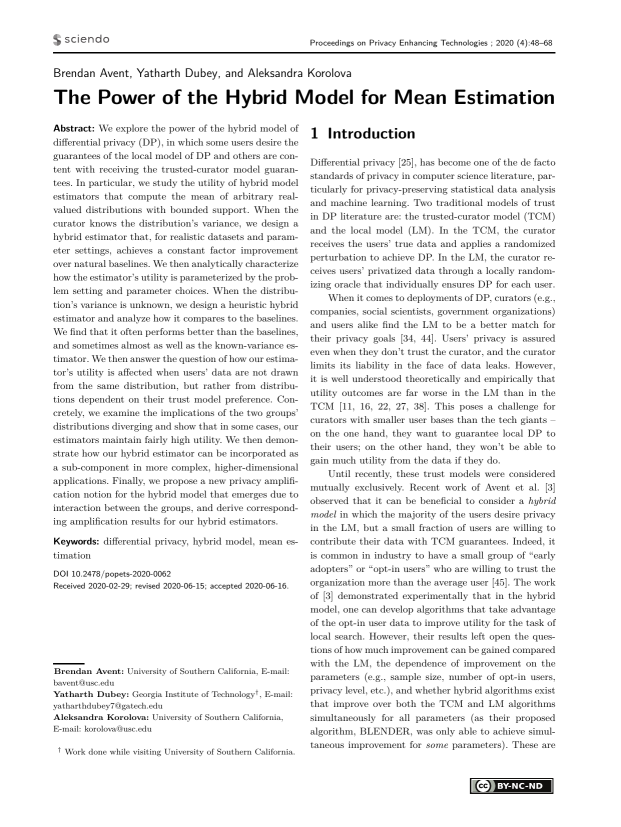The Power of the Hybrid Model for Mean Estimation
Authors: Brendan Avent (University of Southern California), Yatharth Dubey (Georgia Institute of Technology†), Aleksandra Korolova (University of Southern California)
Volume: 2020
Issue: 4
Pages: 48–68
DOI: https://doi.org/10.2478/popets-2020-0062
Abstract: We explore the power of the hybrid model of differential privacy (DP), in which some users desire the guarantees of the local model of DP and others are content with receiving the trusted-curator model guarantees. In particular, we study the utility of hybrid model estimators that compute the mean of arbitrary realvalued distributions with bounded support. When the curator knows the distribution’s variance, we design a hybrid estimator that, for realistic datasets and parameter settings, achieves a constant factor improvement over natural baselines. We then analytically characterize how the estimator’s utility is parameterized by the problem setting and parameter choices. When the distribution’s variance is unknown, we design a heuristic hybrid estimator and analyze how it compares to the baselines. We find that it often performs better than the baselines, and sometimes almost as well as the known-variance estimator. We then answer the question of how our estimator’s utility is affected when users’ data are not drawn from the same distribution, but rather from distributions dependent on their trust model preference. Concretely, we examine the implications of the two groups’ distributions diverging and show that in some cases, our estimators maintain fairly high utility. We then demonstrate how our hybrid estimator can be incorporated as a sub-component in more complex, higher-dimensional applications. Finally, we propose a new privacy amplification notion for the hybrid model that emerges due to interaction between the groups, and derive corresponding amplification results for our hybrid estimators.
Keywords: differential privacy, hybrid model, mean estimation
Copyright in PoPETs articles are held by their authors. This article is published under a Creative Commons Attribution-NonCommercial-NoDerivs 3.0 license.

